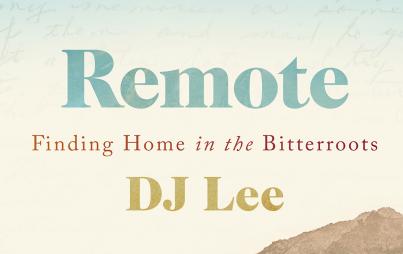
When writing about something beyond personal experience, the key is doing it with respect.
Defer to experts. Link to resources. Clarify with sources when necessary.
Sending words into the world is a privilege — as well as a heavy responsibility.
When done effectively, stories can promote change, encourage introspection, and help marginalized people feel less alone.
On the other hand, those that are done truly poorly are not just offensive, but potentially dangerous. You don't have to search too far to find writing that perpetuates stereotypes about people with mental illness, centers the concerns of neurotypical people, or capitalizes on other people's struggles.
Can you write about mental health when you can’t relate? Can you ethically address the struggles of others? Should we be talking about these things?
As hundreds more articles demonstrate, the answers are yes, yes and YES.
When done with tact and respect, stories about mental health can offer insight to people who don’t understand, and can be beacons in the darkness for those who can relate.
For writers, here are just a few points to keep in mind:
1. Consider limitations
When writing about something beyond personal experience, the key is doing it with respect for the subject and a healthy dose of humility. Interesting as it may sound, one writer I spoke with advised considering the Social Workers Code of Ethics.
In part, that says people “should exercise careful judgment and take responsible steps (including appropriate education, research, training, consultation, and supervision) to ensure the competence of their work and to protect clients from harm.”
For writers, I would add: Defer to experts. Link to resources. Clarify with sources when necessary.
2. Know the boundaries of personal stories
Mental health is a broad topic. Even the people with the same diagnoses on paper may have wildly different experiences.
Applying sweeping generalizations like “anyone with such-and-such condition” is ill-advised.
As the National Eating Disorders Association notes in their guidelines for sharing stories, “While you are an expert of your own experience, remember that this experience is unique to you. It is important to not answer questions that you don’t know the answers to or provide advice that suggests ‘this is what works for everyone.’”
3. Respect the language
The treatment of mental health has a largely unpleasant history.
Unfortunately, the leftover language many of us still use to describe the conditions may be unintentionally demeaning.
“More and more people are moving away from ‘mental illness’ to ‘neurodiversity,’” Rebecca Chamaa, author of Pills, Poetry and Prose: Life With Schizophrenia, told me. “Many people identify differently than others. I prefer to be called a person living with schizophrenia as opposed to a schizophrenic.” [Editor's note: Disability activists have long debated the merits of Person-First Language vs Identity-First Language. When it comes down to it, though, the best thing to do is to just ask people which identity language they individually prefer.]
For writers who may not be as well-versed in a specific area of mental health, it may help to recruit someone with an inside perspective to do a sensitivity check.
4. Value purpose over entertainment
Yes, stories should be engaging — but it shouldn’t come at the expense of real people. As Alison Tedford of Sparkly Shoes and Sweat Drops put it:
There is a line between exploitation and infotainment and education. People with mental health conditions are still people. We do not exist for your entertainment. Do not participate in the trafficking of human misery for personal gain.
Also consider that mental health conditions are not incurable diseases with life sentences.
Writer HW Peterson told me, “No one would write a piece advocating that some cancer patients should be forced to live in the hospital because they might become a burden on their families.” Peterson added that writers must strive to separate the a subject’s diagnosis from that person’s “value as a human being.”
5. Provide resources
In the best of scenarios, stories about mental health are like helping hands extended out to others who are struggling. Don’t lift them up only to have no safe place to set them back down.
Instead, share applicable resources — such as hotline numbers, websites with more information, or contacts for treatment professionals.
Here are some good places to start:
-
The National Eating Disorders Association referral hotline is 1-800-931-2237.
-
The Substance Abuse and Mental Health Services Administration referral hotline is 1-800-662-HELP (4357).
-
The National Suicide Prevention Lifeline is 1-800-273-8255.
For those of us who struggle with mental health, it can be disheartening to see stories that boldly neglect all of these guidelines. In these instances, I hope the takeaway is the rest of us must continue to share our experiences.
Let’s combat the ignorance and irresponsibility of the few with the empowering and enlightening stories of many more.
Image: #WOCinTech Chat.







